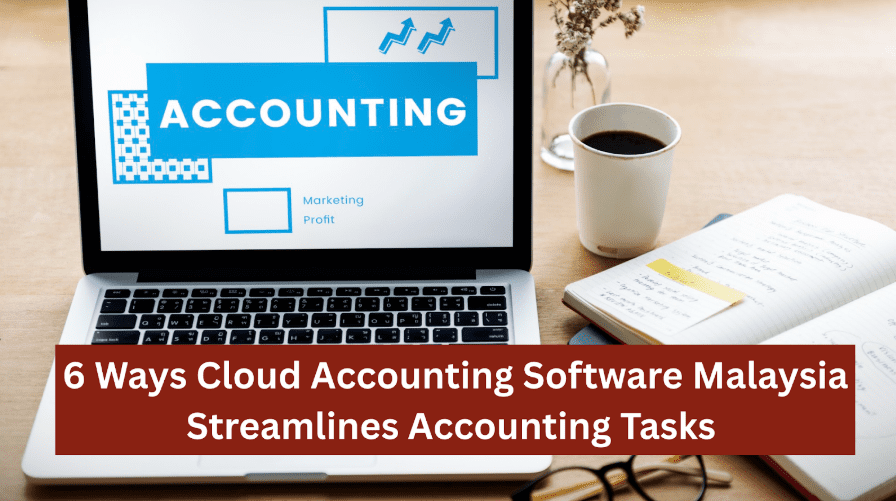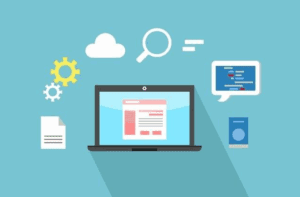6 Ways Cloud Accounting Software Malaysia Streamlines Accounting Tasks

Accounting is the heartbeat of every company, but tradition somehow always seems to contain knots that destroy momentum.
Manual postings, reconciliations that take forever, and paper records don’t just consume valuable hours but also create opportunities for errors.
In today’s modern Malaysian business setup, companies cannot conduct business in the traditional way when there is competition that requires speed and precision. That is where cloud accounting steps in.
These websites not only automate but also change the way financial information is accessed, analyzed, and transmitted.
With cloud migration, companies have immediate access, enhanced collaboration, and streamlined automation, converting hours of drudgery to hours.
Cloud accounting software is the key to access to efficiency for both start-up corporations and small businesses alike.
Six ways in which cloud accounting software in Malaysia makes accounting processes and financial management as a whole easier are discussed below.
1. Access Anytime and Everywhere
Among the most recognizable benefits of cloud accounting software Malaysia is the freedom to access account files anywhere and at any time.
Unlike being tied to a particular office computer, authorized personnel can access an encrypted portal from a laptop, tablet, or smartphone.
To companies that have numerous branches spread all over the country or managers who spend a considerable amount of time on the road, this portability is heaven.
If one employee expense vouchers at the comfort of their while another working out in a different city adds new transactions, the system automatically gets updated so that everything is consistent. This real-time access reduces downtime waiting to be approved, paid, or to make a decision.
It reflects the global trend for hybrid and remote-based offices, where the staff have to be productive no matter where they work.
2. Handling Repetitive Accounting Tasks
Repetitive accounting work like invoicing, bank reconciliation, and tax filing can take hours if done manually.
Cloud applications minimize this work by automating it. Bank feeds import transactions day by day and match automatically against invoices or receipts.
Recurring invoices can be configured to send on a periodic schedule, thereby preventing delays. Even modules such as Sales and Service Tax (SST) filings are possible with minimal or no human intervention.
This is a relief to accountants, as it means less tedium and more time spent on value-added analysis, financial planning, or client advisory services.
Automation not only streamlines the workflow but also eliminates human errors, which would otherwise creep into business records.
3. Financial Reporting in Real-Time
Traditional accounting provides data after the fact, and organizations can’t react quickly enough to respond to changing circumstances.
Cloud accounting provides businesses with timely financial data in seconds after transactions are recorded, enabling them to create on-demand reports. Managers can view profit-and-loss statements, balance sheets, and cash flow projections in real-time.
A businessperson can see the effect that promotional discounts are having on revenue in days, rather than waiting until the end of the month to review and analyze the report.
This enables one to make decisions in advance, before things get out of hand—whether to cut back on spending, invest in areas of growth, or budget for unexpected expenses.
Real-time reporting enables accurate forecasting with actual and real numbers, providing firms with the confidence to make informed plans.
4. Effortless Collaboration of Multiple Teams
Most businesses have accounting processes that involve numerous stakeholders, including department heads, finance personnel, external advisors, and auditors.
With conventional systems, teamwork involves passing around files or exchanging multiple spreadsheets, resulting in chaos.
Cloud accounting software addresses this issue by providing real-time collaboration. Several users can access the system simultaneously, each with role-based permissions that enable or prevent certain actions.
A junior can, for instance, post transactions, while an auditor can only see. This limits bottlenecks and accountability.
Effectively, cloud platforms demystify accounting and open it up to a degree, ensuring that one is working on the same, up-to-date information at all times.
Image source
5. Improved Security and Compliance
Data protection is at the top of people’s lists when companies consider going online with their accounting processes.
New cloud accounting solutions are built with professional security in mind, however. Encryption, multi-factor authentication, and round-the-clock monitoring ensure that sensitive information never falls into the wrong hands.
Automatic backup ensures data can be restored at a moment’s notice in the case of technical problems or unexpected disasters.
This is typically safer than having data stored on a single office server or desktop machine that can be corrupted or stolen.
Cloud accounting software also help organizations stay compliant with local tax and audit requirements. Integrated capabilities, such as automated audit trails and controlled financial reporting, present a more transparent solution to meet Malaysia’s requirements.
6. Cost-Effectiveness and Scalability
As businesses expand, the accounting must expand as well. An expanding business may need additional payroll modules, inventory management systems, or project accounting modules.
Cloud platforms are also scalable, as new people and features can be added without interrupting normal operations.
This makes them extremely suitable for Malaysian SMEs that want to expand both locally and globally. Beyond scalability, cost-effectiveness is also a massive advantage.
Unlike local systems, where licenses, servers, and IT support must be paid for upfront in cash, cloud accounting software is largely based on a subscription model. Meaning, a business pays only what it needs, making financial planning simpler.
Final Thoughts
Cloud accounting software today is no longer a nice-to-have enhancement, but increasingly an imperative for modern businesses across Malaysia.
By providing access anywhere, streamlining mundane tasks, allowing for real-time reporting, collaborative working, security, and flexibility, cloud accounting software makes accounting easier to achieve than it can be under conventional approaches.
Such systems not only consolidate financial management into a back-office task but also a strategy-gale driver of expansion.
For both medium-sized and small enterprises, as well as large enterprises, adopting cloud accounting software is a move toward greater agility, transparency, and sustainable prosperity.

Source: 6 Ways Cloud Accounting Software Malaysia Streamlines Accounting Tasks







